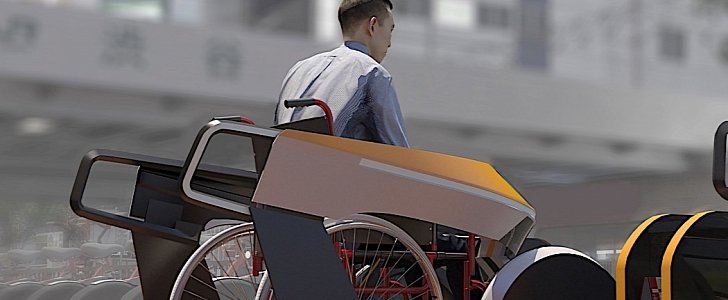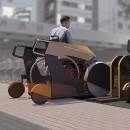This week the Consumer Electronics Show opens its doors at the Las Vegas Convention center to let loose a wealth of ideas and wonders for the future. This year, perhaps more than ever before, mobility will be one of the main attractions of the show.
Because of the increasingly complicated relationship between high-end computer technology and the automotive industry, carmakers will flock to CES 2019 to show all their might, from new car models to the latest in artificial intelligence, virtual reality worlds and even walking cars.
At Toyota’s booth, the centerpiece of the display will be not one, but five radically evolved wheelchairs or other devices meant to help people with lower-limb paralysis. These five concepts are in fact the finalists for the $4 million Mobility Unlimited Challenge launched by the Japanese in November 2017.
The five finalist teams come from the U.S., Italy, the UK, and Japan. Each will receive a grant of $500,000 to take their ideas to the next level. The one team that will be declared the winner of the competition on September 1, 2020, will receive an additional $1 million prize.
The concepts to be shown at CES are the Evowalk, Moby, Phoenix Ai Ultralight Wheelchair, Qolo, and Quix.
Evowalk and Quix have been developed by U.S.-based companies Evolution Devices and IHMC & MYOLYN. The former is a sleeve of sorts that once wrapped around the leg stimulates the right muscles at the right time to improve mobility, and the latter a powered exoskeleton.
The Moby has been created by Italdesign as a sharable wheelchair network of wheel-on powered devices. In theory, Moby would allow manual wheelchair the option of moving about in powered ones, at least for a little while.
The British Phoenix Ai is a self-balancing wheelchair, while the Qolo (Quality of Life with Locomotion) is an exoskeleton on wheels, allowing users to sit or stand.
“There are so many technological opportunities to explore approaches to alleviate challenges stemming from lower-limb paralysis,” said in a statement Eric Krotkov, Toyota Research Institute chief science officer.
“A competition like the Mobility Unlimited Challenge gets innovators to focus on the same problem to identify something of great common interest that serves society."
At Toyota’s booth, the centerpiece of the display will be not one, but five radically evolved wheelchairs or other devices meant to help people with lower-limb paralysis. These five concepts are in fact the finalists for the $4 million Mobility Unlimited Challenge launched by the Japanese in November 2017.
The five finalist teams come from the U.S., Italy, the UK, and Japan. Each will receive a grant of $500,000 to take their ideas to the next level. The one team that will be declared the winner of the competition on September 1, 2020, will receive an additional $1 million prize.
The concepts to be shown at CES are the Evowalk, Moby, Phoenix Ai Ultralight Wheelchair, Qolo, and Quix.
Evowalk and Quix have been developed by U.S.-based companies Evolution Devices and IHMC & MYOLYN. The former is a sleeve of sorts that once wrapped around the leg stimulates the right muscles at the right time to improve mobility, and the latter a powered exoskeleton.
The Moby has been created by Italdesign as a sharable wheelchair network of wheel-on powered devices. In theory, Moby would allow manual wheelchair the option of moving about in powered ones, at least for a little while.
The British Phoenix Ai is a self-balancing wheelchair, while the Qolo (Quality of Life with Locomotion) is an exoskeleton on wheels, allowing users to sit or stand.
“There are so many technological opportunities to explore approaches to alleviate challenges stemming from lower-limb paralysis,” said in a statement Eric Krotkov, Toyota Research Institute chief science officer.
“A competition like the Mobility Unlimited Challenge gets innovators to focus on the same problem to identify something of great common interest that serves society."






